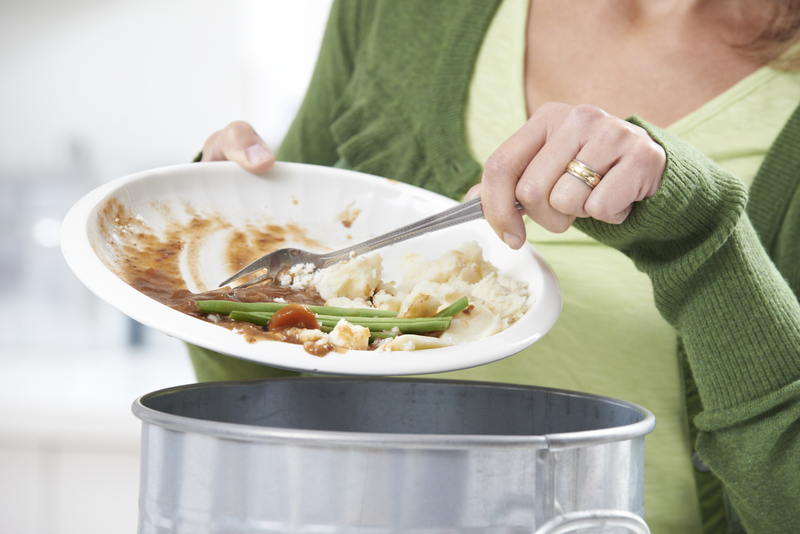Turning PPE Waste Disposal into an Eco-Positive Habit
The global surge in Personal Protective Equipment (PPE) waste due to the COVID-19 pandemic and other health concerns has become an urgent environmental issue. Masks, gloves, face shields, and disposable gowns--once essential tools in protecting our health--now present a new challenge: how do we transform PPE disposal from a hazardous necessity into an eco-positive, sustainable habit?

Understanding the Magnitude of PPE Waste
The spike in PPE consumption has led to millions of tons of plastic-based waste entering our environment. Consider these facts:
- Over 129 billion face masks are used every month globally.
- Most PPE items are made from non-biodegradable materials like polypropylene or polyethylene.
- PPE waste pollutes oceans, clogs natural habitats, and threatens wildlife.
Understanding the scope of the problem is the first step in turning PPE waste disposal into a sustainable and eco-positive habit.
Why Is PPE Waste Harmful?
Non-recyclable and disposable by design, improperly discarded PPE can become a serious environmental hazard:
- Microplastic pollution: When exposed to sunlight and physical abrasion, PPE items break down into microplastics that infiltrate food chains.
- Wildlife endangerment: Animals can mistake PPE items for food or become entangled in elastic bands, posing fatal risks.
- Public health threats: Used PPE may harbor pathogens, raising the risk of disease spread if not managed responsibly.
Eco-Positive PPE Waste Disposal: Shifting Mindsets
Transforming PPE waste disposal into an eco-friendly habit requires a reimagining of our daily practices and consumer choices. Eco-positive disposal turns a potential environmental hazard into an opportunity for sustainability:
- Minimize PPE usage where possible with reusable alternatives.
- Educate communities on proper disposal and recycling practices.
- Innovate new recycling processes for used PPE.
1. Opt for Reusable PPE When Possible
Swap out disposable masks for washable, durable alternatives made from natural fibers. Encourage local organizations and businesses to provide reusable PPE options, especially in non-medical contexts.
- Cloth masks: Offer effective protection and can be sanitized and reused multiple times.
- Reusable face shields: Made from durable plastics, these can be disinfected after each use.
2. Adopt Proper PPE Waste Segregation
Proper disposal of PPE waste starts with correct segregation at the source.
- Designate separate bins: Place clearly marked PPE waste bins in high-traffic public and private spaces.
- Seal PPE waste: Double-bag disposable PPE items in plastic liners before discarding, reducing infection risk and accidental littering.
Never dispose of used PPE in recycling bins with general household waste. Mixing contaminated items risks spreading disease and contaminates recyclable materials.
3. Explore PPE Waste Recycling Initiatives
Is it possible to recycle PPE? While most traditional recycling systems do not accept contaminated PPE, innovative solutions are emerging:
- Specialized PPE recycling programs: Some companies and NGOs now collect and recycle PPE waste into products like park benches, road surfaces, or construction panels.
- Chemical recycling: Advanced facilities have developed methods to break down polypropylene masks into reusable raw materials like fuel or new plastics.
Search your locality for PPE recycling drop-off points--many major cities are piloting such eco-positive initiatives.
4. Support Biodegradable PPE Alternatives
Another key solution is transitioning to biodegradable PPE. Companies are rolling out masks, gloves, and gowns made from plant-based fibers such as cellulose, hemp, or bamboo. By supporting these brands, consumers can lessen the long-term environmental impact of PPE waste.
- Compostable face masks: Break down in natural environments within weeks.
- Natural fiber gloves: Offer protection without synthetic plastic pollution.
5. Share Knowledge and Mobilize Communities
Advocacy and education are vital in embedding the habit of eco-positive PPE waste disposal. Spread awareness in your workplace, school, or online communities:
- Share reliable information on safe and sustainable PPE disposal methods.
- Organize PPE litter clean-ups in community spaces or parks.
- Work with local authorities to install more PPE disposal bins and recycle infrastructure.
How to Build Daily Eco-Positive Disposal Habits
Turning PPE waste disposal into a healthy environmental habit doesn't require massive lifestyle changes. Here are practical steps for everyday individuals and organizations:
For Individuals:
- Carry a reusable waste bag for used masks and gloves when you're on the go.
- Wash cloth masks daily and have several on hand for rotation.
- Research local PPE waste recycling programs and make use of them.
- Tie elastic bands together before disposing to prevent animal entanglement.
For Businesses and Institutions:
- Provide clear guidance and signage for staff and visitors on how to dispose of PPE waste responsibly.
- Partner with PPE recycling initiatives to divert large quantities from landfills.
- Switch to biodegradable PPE solutions where possible.
- Train cleaning staff in safe PPE collection and handling protocols.
The Role of Policy and Industry Innovation
Alongside personal responsibility, policy changes and industry innovation are critical to scaling eco-positive PPE waste management.
Government Policy
- Mandate clear labeling of PPE items' recyclability and disposal instructions.
- Incentivize research into eco-friendly and recyclable PPE products.
- Fund citywide PPE waste collection and processing infrastructure.
Industry Solutions
- Design and market reusable PPE for mainstream consumers, not just healthcare workers.
- Invest in scalable recycling and upcycling technologies for contaminated PPE.
- Create take-back programs for businesses and institutions with high PPE usage.
Success Stories: Eco-Positive PPE Disposal in Action
Across the globe, communities and organizations have started pioneering efforts in eco-positive PPE waste management. Consider these examples:
- TerraCycle's Zero Waste PPE Box: Available in multiple countries, this program allows organizations and individuals to send used masks, gloves, and other PPE directly to specialized facilities for recycling.
- The UK's "ReFactory" initiative: Recycling PPE waste from hospitals into construction panels used in building and landscaping projects.
- Hong Kong's Plastic Free Seas: Organized volunteer PPE clean-ups along coastlines, raising awareness around marine pollution from pandemic-related waste.

Innovations Shaping the Future of PPE Waste Disposal
A new era of eco-friendly PPE waste solutions is emerging, bringing hope for a more sustainable future:
- Biodegradable masks: Innovations in plant-based polymers make mass production of compostable PPE realistic and affordable.
- Pyrolysis recycling: This process breaks down plastic PPE into reusable oils and petrochemicals, reducing landfill use and creating a circular economy.
- Educational apps: Apps and online platforms map out PPE recycling points and provide guidance on sustainable disposal.
With each breakthrough, we're getting closer to making PPE disposal as eco-positive as possible.
Conclusion: Changing Habits, Protecting Our Planet
Throughout recent years, PPE has protected lives--but now, we must also protect the planet from the impact of its waste. Building eco-positive PPE disposal habits is a collective effort involving individuals, communities, businesses, and governments.
By choosing reusable and biodegradable products, segregating waste, supporting innovation, and encouraging policy change, we can transform PPE waste disposal into a practice that doesn't just defend public health but safeguards the environment for generations to come.
Your actions matter. Start today by examining your own PPE habits and taking one step toward a more eco-positive approach to waste disposal.
Summary: Steps to Turn PPE Waste Disposal into an Eco-Positive Habit
- Choose reusable or biodegradable PPE when available.
- Dispose of single-use PPE responsibly in designated waste bins.
- Join community initiatives and spread awareness on the importance of eco-friendly PPE waste handling.
- Support brands and policies that prioritize sustainability in PPE design and recycling.
Together, we can turn PPE waste from an environmental problem into an opportunity for positive change. Let's make eco-positive PPE waste disposal a habit for a healthier, cleaner world.